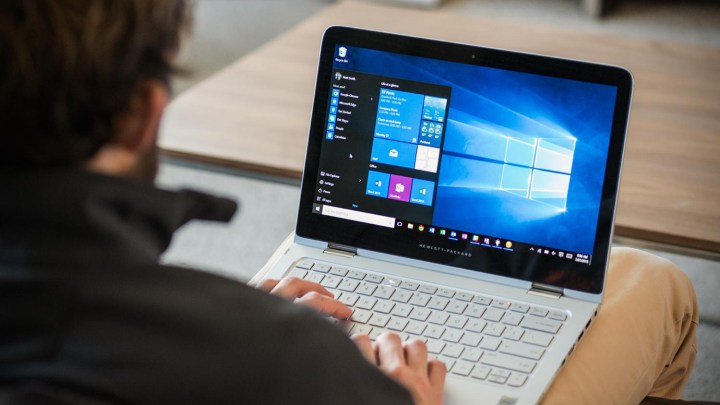
The Secure Productive Enterprise E3 bundle costs $7 per user per month, or $84 annually, and includes Windows 10 Enterprise 10 E3, Office 365 E3, and Enterprise Mobility and Security E3.
Enterprise users, it’s worth noting, did not have access to the free Windows 10 upgrade, so offering it in a subscription alongside Office and a security suite could be compelling for some business.
That’s the pitch Microsoft is making to their Cloud Service Providers network of resellers. A blog post by Yusuf Mehdi, Microsoft vice president for Windows and Devices, outlined the changes.
“Partners can now offer their business customers the ‘full IT stack’ from Microsoft, including Windows 10, Office 365, Dynamics Azure and CRM as a per user, per month offering through a single channel, which businesses can scale up or down as their needs change,” Yusuf said.
Why would businesses bother with a per-user subscription, instead of sticking to per-device licenses? Because users are easier to count than machines, according to Mehdi. This is about “helping businesses lower up-front costs, eliminating the need for time-consuming device counting and audits, and making it easier to stay compliant with a subscription-based, per-user licensing model,” Mehdi wrote.
Microsoft also announced the Cloud Service Providers will be able to offer Surface as a service, allowing customers to always have the latest version of the device. Pricing for this program is not yet available.
So yes, there are Windows 10 subscriptions now. But these aren’t coming to the consumer space. Windows 10 has all sorts of built-in monetization schemes for users, from the Windows Store to Sky Drive. Microsoft will monetize users using these and other tools, while allowing Enterprise users to take more control of their systems — and remove these features — for a monthly fee.
Editors' Recommendations
- Windows 11 might nag you about AI requirements soon
- You’re going to hate the latest change to Windows 11
- The most common Windows 11 problems and how to fix them
- Microsoft announces a new threat to push people to Windows 11
- How to adjust screen resolution in Windows 11 and older


